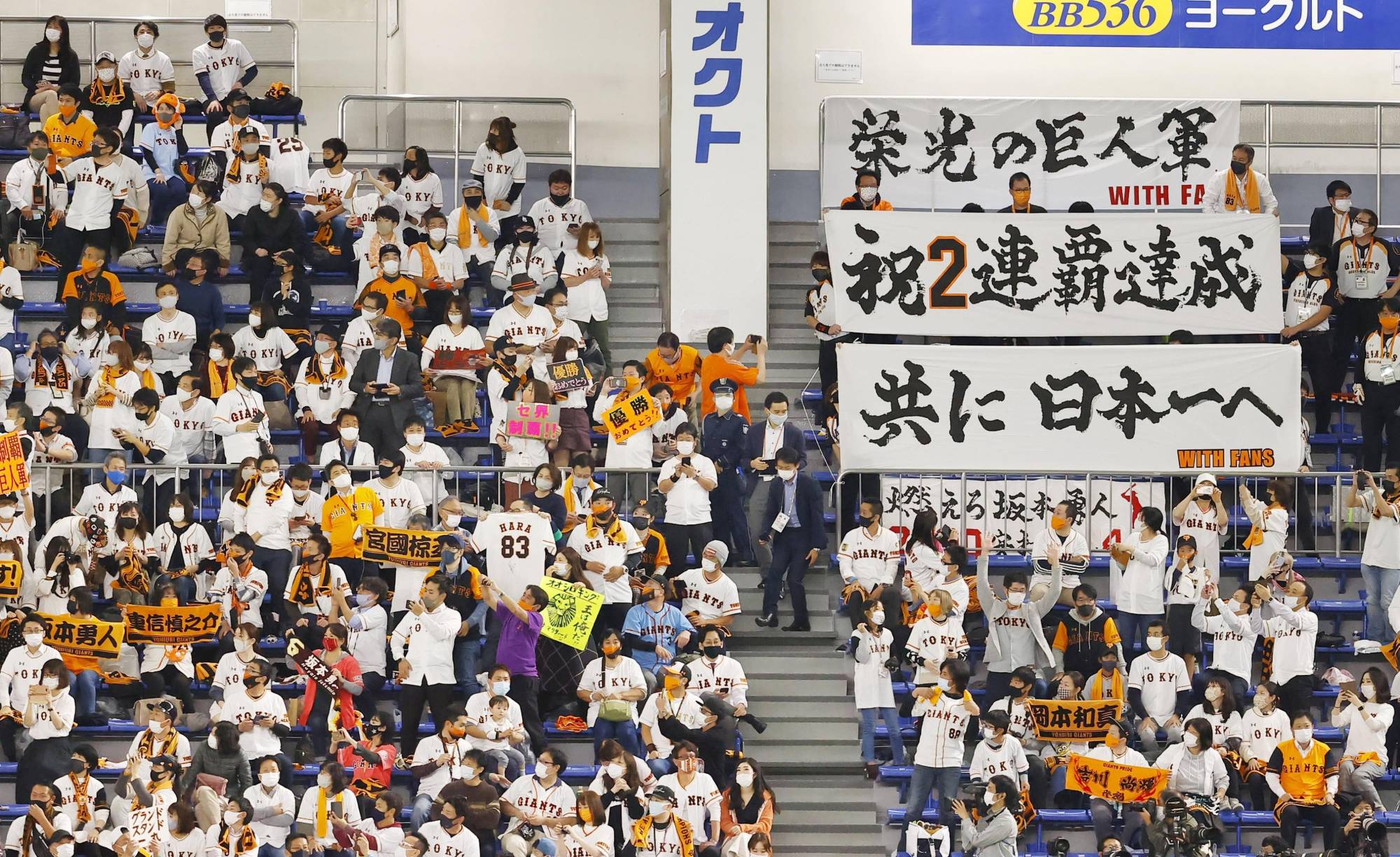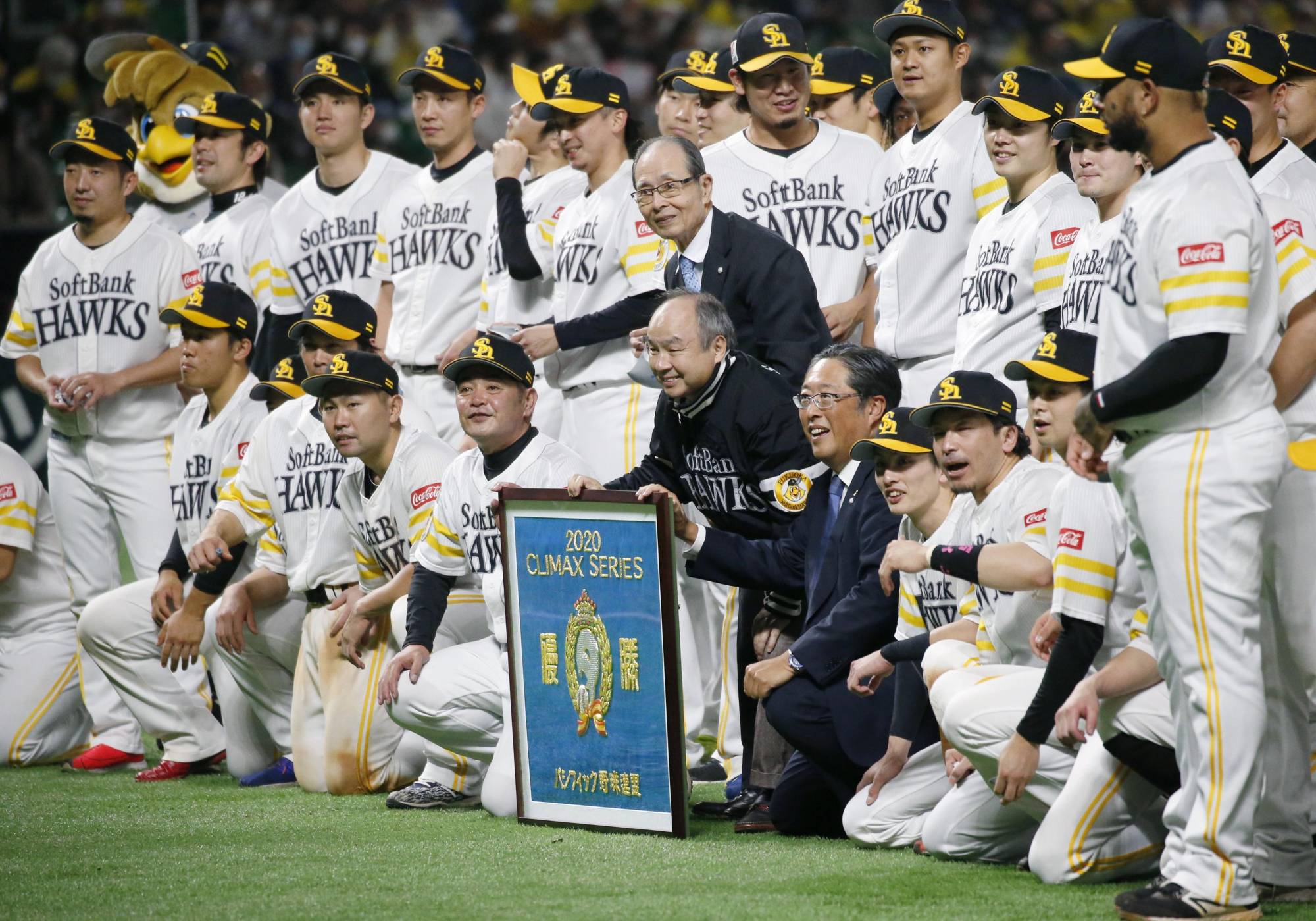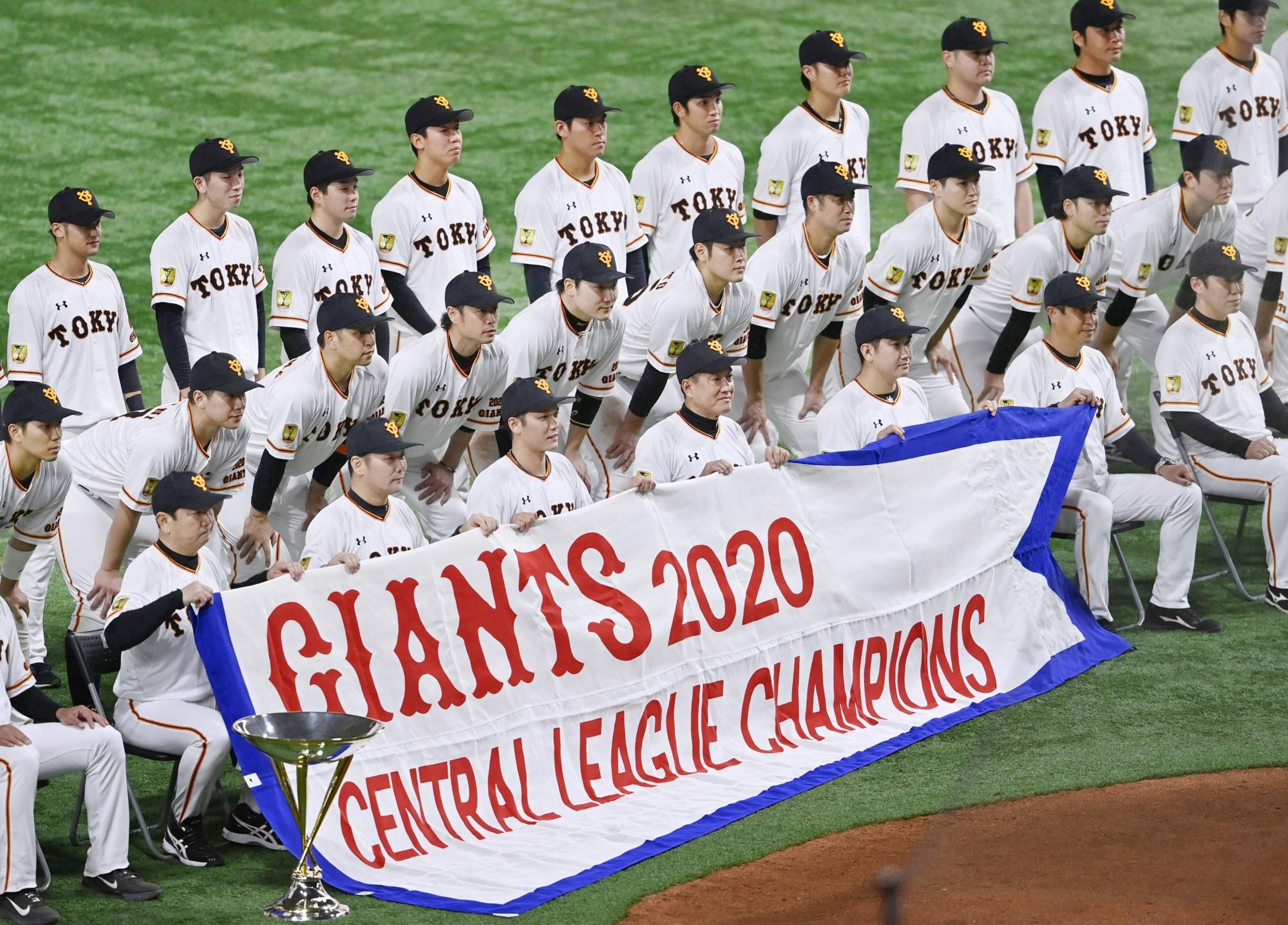The Fukuoka SoftBank Hawks and Yomiuri Giants are about to meet in the most consequential Japan Series in recent memory.
Not because of what might happen on the field — though either the Hawks winning a fourth straight title or the Giants pulling off a, well, giant-killing would be big — but because of everything going on around the finale of this coronavirus-afflicted 2020 season.
The Series arrives as COVID-19 cases around Japan are rising again and during a week in which International Olympic Committee President Thomas Bach visited the country to express his confidence not only that Japan can stage the postponed 2020 Olympics next summer, but that fans would be in the stands to see it.
The Japan Series isn’t a one-to-one test case for the games, although baseball is an Olympic sport. That doesn’t, however, mean NPB won’t have lessons to teach Tokyo 2020 organizers if everything goes well.
NPB officials have already steered the league through an abbreviated 120-game season — and one postseason series — without the scheduling problems that plagued MLB and have been affecting the NFL, college football and other sports. That said, the Japan Series still comes with a degree of difficulty.
MLB staged the World Series between the Los Angeles Dodgers and Tampa Bay Rays in a bubble at Globe Life Field in Arlington, Texas. NPB, conversely, will play out the Japan Series as normal, with the Hawks and Giants traveling between two venues. There is also an extra wrinkle. Because Tokyo Dome, the Giants’ home park, is unavailable due to scheduling conflicts caused by the season’s three-month delay, the Kyojin will host Games 1 and 2 — and, if necessary, Games 6 and 7 — at Kyocera Dome in Osaka.

That means the Giants, Hawks, NPB officials, media and surely some fans from Tokyo, Fukuoka and the surrounding areas will all be descending on Osaka en masse this weekend. Osaka’s COVID-19 task force website listed the prefecture as having over 200 cases each day from Nov. 10-15, including 285 on Saturday. The total dropped to 73 on Monday. After those two games, the Japan Series traveling party will head to Fukuoka and possibly return to Osaka a few days later.
That all means concentrated use of public transport and hotels at a time when the country’s Go To Travel tourism campaign is under scrutiny with the virus seemingly gearing up for a third wave.
So it will be educational, to say the least, to see how NPB pulls it off.
On one hand, the series is a potential virus powder keg and it’s not as though outbreaks haven’t already happened in baseball. The Hanshin Tigers dealt with an outbreak in September and the Chiba Lotte Marines had one in October. In MLB, the Miami Marlins and St. Louis Cardinals dealt with clusters within their organizations. NPB, aware of the risks, already has a public contingency plan in place if the Series has to be stopped early.
On the other hand, the Japan Series presents a nice test case for Tokyo 2020 organizers already riding high after a four-nation gymnastics competition, which featured athletes and staff arriving from outside Japan, went off without a hitch last weekend.

NPB will have virus protocols in place to keep its players safe and teams (in both baseball and soccer’s J. League) have been traveling around Japan to play games since the summer. National guidelines limiting crowd size will also remain in place for the Japan Series. In sumo, a contact sport, the last two basho have been successfully staged with limited numbers of fans present, though all matches have been contested at Tokyo’s Ryogoku Kokugikan.
Japanese baseball will not only have to manage the players and staff of two organizations, but also its own officials, media members and a limited number of fans all at once starting Friday, before packing up and taking that show on the road at least once.
A smooth Japan Series would give Olympic organizers more information to parse as they desperately search for methods to stage the games during the pandemic.
Baseball and soccer teams have been playing in front of fans since July. Sumo has shown long competitions can be staged in one place and the gymnastics event proved Japan can pull off a bubble on a small stage. Now NPB will step to the plate for one of the nation’s biggest athletic undertakings since the pandemic began disrupting sports around the world.
At the center of it all will be two teams with potential Olympians such as Hawks slugger Yuki Yanagita and Giants stars Tomoyuki Sugano, Hayato Sakamoto and Kazuma Okamoto. How they play will drive the conversation about the series itself and NPB will be hoping all the news is made on the field.
The Japan Series is already the biggest event in the country’s biggest sport. With everything going on off the diamond, though, this year’s edition could end up being more significant than most.

Source : Baseball – The Japan Times